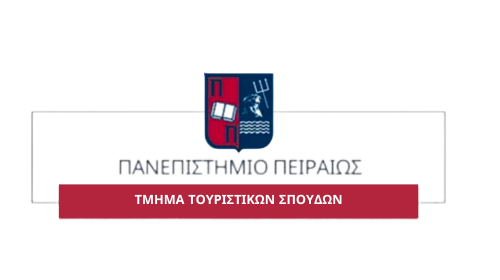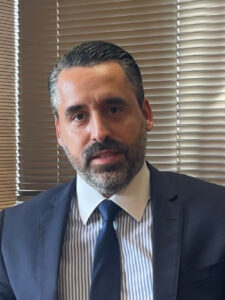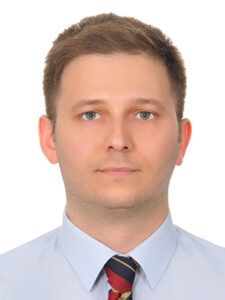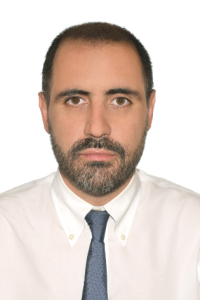Department of Tourism Studies
9 January 2024 2024-01-28 15:34Department of Tourism Studies
Contact Information:
Address: 80 Karaoli & Dimitriou Str., 185 34, Piraeus
Email: ts-secr@unipi.gr
Phone: +30 210 414-2079, -2112, -2104

A few words about the department
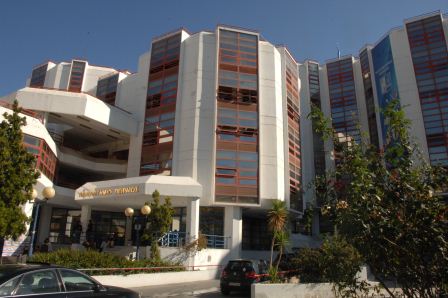
The vision of the Department of Tourism Studies is to serve as the catalyst for Tourism Higher Education in Greece and internationally, leading to the formation of tourism executives and managers for tourism businesses, organizations and destinations, with an excellent level of education, business intelli- gence and innovative thinking, as well as a culture of collectivity and inclusion, towards avail of society and of sustainable tourism development.
Mission
The mission of the Department of Tourism Studies is:
- To develop highly educated professionals in the field of higher university education who meet all the requirements for a career in all branches of tourism, as well as in all tourism interest entities that deal with development and policy in tourism at an international, national, regional, and local level.
- To promote excellence in tourism education and the utilization of knowledge, aiming to shape high-level tourism scientists with values and comprehensive knowledge on tourism issues.
- To develop and support research and innovation that contribute to addressing the contemporary economic, social, and business challenges of tourism enterprises, organizations, and destinations at a local, regional, national, and international level in an ever-changing international environment, with rapid technological developments that bring new models of corporate governance.
- To shape scientists capable of understanding the challenges of the constantly changing modern tourism environment and contributing to the progress of tourism development and entrepreneurship.
- To shape future leaders in Tourism, with the skills, knowledge, and tools needed to effectively manage tourism enterprises-organizations and be able to play a significant role in the broader economic and social life of the country or the international tourism community.
- To promote professional specialization and training in tourism, through flexible, targeted, and modern lifelong learning and training programs (either in-person, distance learning, or blended learning).
- To promote extroversion and cooperation with academic, research, social, and other bodies, for the development of tourism entrepreneurship and society.
- To develop a unique culture of collectivity by promoting the values of Sustainability, Accessibility for all, and Inclusion.
- To connect the Department and the student community with the tourism labor market.
Quality Assurance
«The Department of Tourism Studies at the University of Piraeus recognizes Quality as the primary means to achieve a high level of educational and research work with a focus on the student. The quality culture of the Department is manifested by the commitment of its academic, research, and administrative staff, as well as its students, to this goal. The members of the Department work and cooperate according to the values and goals of the Department, as defined by its Vision and Mission, adopting common policies and practices that allow universal participation in continuous improvement processes».
Department of Tourism Studies Quality Statement
The Department of Tourism Studies is committed to ensuring Quality with a student-centric approach in all its academic, educational, and research activities, providing contemporary and competitive study programs, focusing on innovation and utilizing applied research in tourism. The Department also recognizes the contribution of Quality as a means to enhance equal access to knowledge, extroversion, international recognition, and cooperation with productive bodies in tourism.
Implementation of Quality Policy of the Department of Tourism Studies
The Quality Policy of the Department, and specifically of the Undergraduate Program, is shaped with the academic identity, vision, and mission of the Department in mind, as reflected and defined within a coherent strategy that forms the basis for setting goals, especially quality goals. These goals dictate specific actions and are accompanied by corresponding indicators that allow continuous monitoring and thorough tracking of the level of implementation.
The goal of the quality policy is to provide academic and research services that fully meet the requirements of students, the academic community, and the broader field of Higher Education. A pivotal point in relation to the above is the processes for providing excellent education and ensuring a high level of teaching and research.
Based on the aforementioned, a culture of quality is developed, cultivated, and promoted, manifested by the commitment, cooperation, and coordinated effort of the academic, research, and administrative personnel, as well as the students of the Department. In this context, the quality culture lies in supporting a Policy that includes fundamental values such as:
- Academic freedom in education, research process, free expression, and circulation of ideas within the framework of the Constitution and the laws of the state.
- Respect for meritocracy, academic and scientific ethics, and morality.
- Continuous improvement and dedication to the development of tourism science and the creation and dissemination of knowledge to students and the community.
Specifically, the Quality Policy is implemented through:
- Commitment to alignment with the broader institutional-legal framework of Higher Education and the National Authority for Higher Education.
- Alignment with the Internal Regulation and Quality Policy of the University of Piraeus.
- Implementation of the Internal Quality Assurance System (IQAS) in accordance with the guidelines of the Quality Assurance Unit (MODIP) of the University of Piraeus.
- Proper procedures, involving all stakeholders of the Department (administrative bodies, instructors, researchers, students of all study cycles, administrative staff, technical staff, collaborators, university fellows, alumni, cooperating professional, research, academic and social bodies, and other interested parties).
- Recognition and support from all members of the Department’s academic community.
A key pillar for the implementation of the Quality Policy and the consequent assurance of the Department and its programs’ quality is the establishment of the aforementioned procedures in cooperation with Quality Assurance Unit (MODIP), which explicitly dictate (through manuals and flowcharts):
A) The Department’s internal evaluation using the appropriate tools/questionnaires for collecting primary quality data.
Β) The collection and processing of quality data is carried out by the Department’s Internal Evaluation Committee (OMEA) in collaboration with the Institution’s Quality Assurance Unit (MODIP).
On their part, the members of the Internal Evaluation Committee (OMEA) contribute to:
- Monitoring the implementation of quality objectives.
- Aligning the quality policy with the broader strategic objectives of the Department and the Institution.
- Implementing actions for continuous quality improvement of the Department’s educational, research, and administrative work.
- Applying corrective actions in case of deviation from the objectives.
- Conducting Internal Evaluation.
- Constructive collaboration with the Institution’s Quality Assurance Unit (MODIP).
The guide and starting point in the close collaboration between the members of the Institution’s Quality Assurance Unit (MODIP) and the Department’s Internal Evaluation Committee (OMEA) is the Internal Quality Assurance System that has been established, promoting the implementation of actions concerning:
- Quality assurance processes used in the international academic community related to providing excellent education and ensuring high-level research.
- Quality assurance through the recruitment of high-level academic, research, and administrative staff.
- Continuous mobilization and support of students in deepening knowledge in cutting-edge fields and acquiring skills in modern scientific areas.
- Documentation of the quality system, including the definitions of the quality policy and systematic monitoring of performance indicators.
- Evaluation of research, education, social interaction, as well as administrative and support services.
- Internal evaluation.
Publicizing the Quality Policy
The Quality Policy is publicized on the Department’s website and social media, and disseminated electronically and in print, to inform all interested parties (instructors, researchers, students of all study cycles, administrative staff, technical staff, collaborators, university fellows, alumni, cooperating professional, research, academic and social bodies). Through its publicization, the aim is to ensure consensus and active involvement of all in the prescribed processes.
Curriculum and Faculty Evaluation
The evaluation of the curriculum and the faculty by undergraduate students of the Department aims at the continuous improvement of the curriculum and the teaching work of the Department. The evaluation is carried out by completing a special questionnaire designed for this purpose. The evaluation questionnaire for each course is filled out by the students during the last weeks of each semester.
Students Evaluation Report for undergraduate study program academic year 2017-2018 (in Greek)
Students Evaluation Report for undergraduate study program academic year 2018-2019 (in Greek)
Students Evaluation Report for undergraduate study program academic year 2019-2020 (in Greek)
Students Evaluation Report for undergraduate study program academic year 2020-2021 (in Greek)
Students Evaluation Report for undergraduate study program academic year 2021-2022 (in Greek)
Curriculum Evaluation by graduates
With the goal of improving the quality of the undergraduate study program, an annual survey is conducted regarding the evaluation of the experience of the Department’s graduates.
Graduates Evaluation Report for undergraduate study program academic year 2020-2021 (in Greek)
The certification process ensures that the study program of the Department meets all the formal specifications set by the Hellenic Authority for Higher Education (H.A.H.E.) and followed by the University of Piraeus. It also guarantees that the performance and capabilities of the graduates of this study cycle (learning outcomes) correspond to the expected professional qualifications required by society and the labor market. Finally, it certifies that the study program meets the minimum quality criteria as formed by the HQA (Hellenic Quality Assurance).
Administrative Bodies
For the biennium 2023-2025, the Chair of the Department is Professor Angelos Kotios, and the Vice-Chair is Professor Petros Maravelakis.
The Department Assembly consists of:
a. All faculty members of the Department.
b. Faculty members from other Departments of the School.
c. Student representatives, accounting for 50% of the faculty members.
d. Representatives of Special Technical – Laboratory Staff (EDIP, ETEP) and non-doctoral assistants, Scientific Associates, and Curators, accounting for 5% of the faculty members.
Each year, the Chair of the Department appoints faculty members to various committees that deal with matters concerning the Department, in order to assist in the recommendations to the Department Assembly. Such committees include the Internal Evaluation Team (ΟΜ.Ε.Α.), the Study Program Committee, the Student Affairs Committee, etc.
The Head of the Secretariat of the Department is Theodora Rouvali.
Advisory Board
In the context of realizing its vision, namely establishing itself as a catalyst for superior tourism education in Greece and internationally, leading to the development of highly trained personnel for tourism enterprises, organizations, and destinations with entrepreneurial and innovative thinking, and a culture of collectivism and inclusion for the benefit of society and sustainable tourism development, the Department decided to form an informal advisory committee with the primary purpose of providing guidance and advice to the Department.
Specifically, the Advisory Committee discusses and formulates proposals for:
- The strategic direction of the Department and its undergraduate study program.
- The development and strengthening of the Department’s networking in Greece and abroad.
- The continuous improvement of the undergraduate study program and the operation of the Department.
- The effective connection and cooperation with the labor market.
The Advisory Committee of the Department of Tourism Studies of the University of Piraeus consists of the following:
- Athanasios Kouremenos, Emeritus Professor of Marketing (Chairman).
- Alexandros Vassilikos, President of the Hellenic Chamber of Hotels – President of the European Organisation of Hotels, Restaurants and Cafes (HOTREC) – CEO of Airotel Hotel Group (Member).
- Stefano Dominioni, Director of the European Institute of Cultural Routes of the Council of Europe (Member).
- Noel Josephides, Chairman of the Tour Operator Sunvil – former Chairman of the Association of Independent Tour Operators (AITO) – Chairman of the Travel Foundation (Member).
Employment Opportunities
The Department of Tourism Studies allows students flexibility and access to a wide educational area of management, which will enable graduates of this Department to pursue careers across the entire spectrum of the international services economy.
Graduates of the Department can work in significant positions in airline companies or leisure shipping line companies, as researchers and analysts in national or local tourism services, as consultants in United Nations or European Union services, as professors in Tourism Schools, as executives in Travel Agencies or Tour Operator Companies, as managers of Tourist Information Centers, as middle or senior executives in all functions of the tourism industry enterprises, as executives in consulting firms specialized in the Tourism Industry, etc.
The degree in Tourism Studies will become the starting point for the graduates’ career in the management of tourism and hospitality organizations. Tourism is the most rapidly developing industry today and therefore can provide excellent career opportunities for university-educated graduates both in Greece and internationally.
Our graduates will acquire the necessary skills and knowledge to become competent managers in the rapidly growing tourism sector.
Teaching and Research Personnel
Faculty members
Επίκουροι Καθηγητές
Faculty members of other Departments
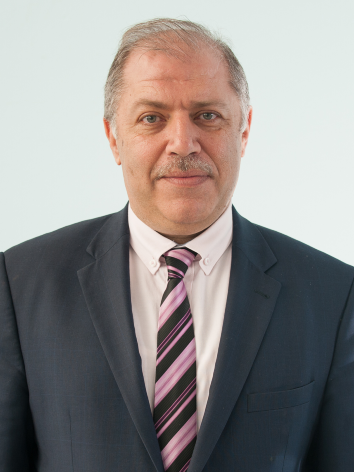
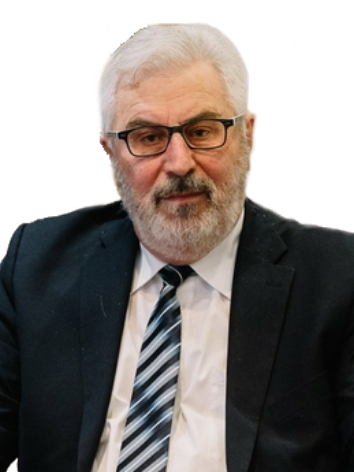
Aggelos Kotios
President of the Department of Tourism Studies
Professor (Dep. Int. Eur. St.)
Profile

Petros Maravelakis
Vice-president of the Department of Tourism Studies
Professor (Dep. Bus. Adm.)

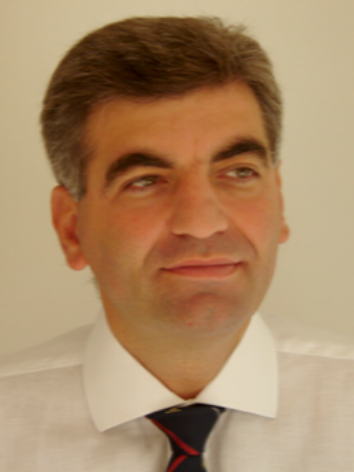
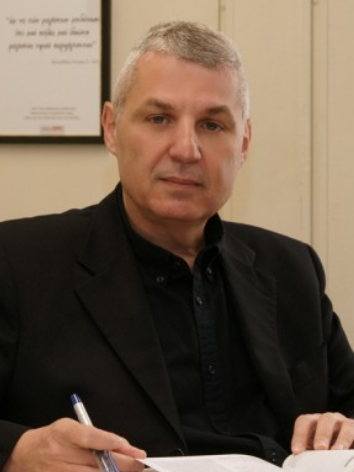

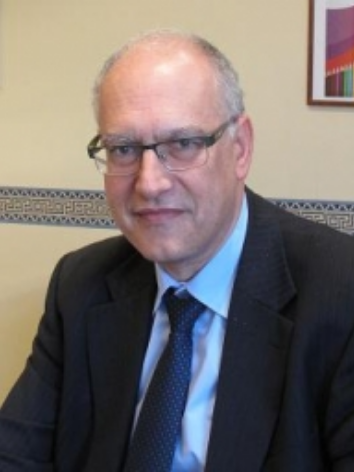
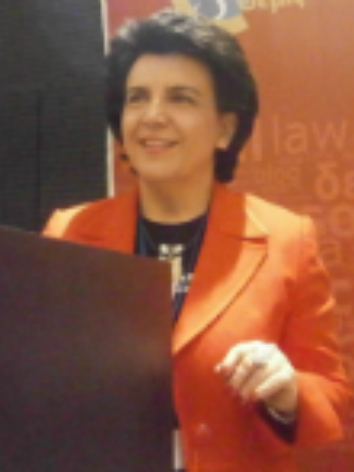

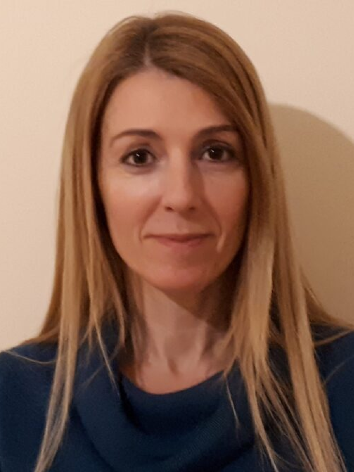
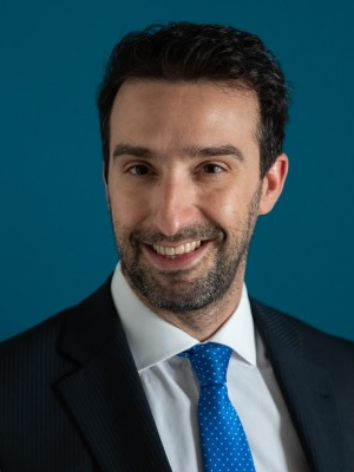
Members of special teaching, laboratory and technical personnel
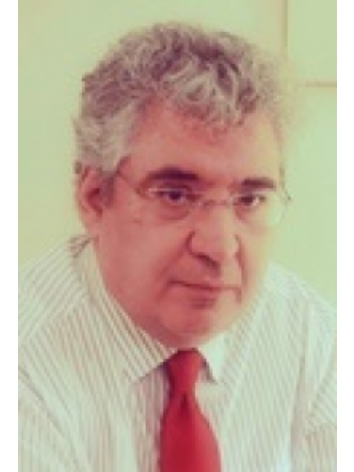
Other teaching personnel
Konstantina Agoraki
Adjunct Lecturer
Personal page
Profile
Zoi Antonopoulou
Adjunct Lecturer
Personal page
Profile
Dimitra - Margieta Lykoudi
Adjunct Lecturer
Personal page
Profile
Administrative Personnel
Theodora Rouvali
Head of Secretariat
Personal page
Profile
Kyriakoula Ntouva
Secretariat
Personal page
Profile
Georgia Kleftogianni
Secretariat
Personal page
Profile
Undergraduate studies
The Undergraduate Study Program on Tourism Studies has been designed to provide knowledge (general and specialized) on a multitude of subjects in the Tourism industry, guided by contemporary market trends and needs.
The Undergraduate Study Program of the Department of Tourism Studies aims at educating and highly training in contemporary topics of management of tourism enterprises, tourism marketing, human resource management in tourism enterprises, total quality management, finance, accounting, information systems and law in tourism enterprises, as well as in subjects of tourism geography, promotion of tourist destinations, distribution and procurement, negotiation, leadership, development and management of new technologies in tourism enterprises, preparation of business plans, and specialization in subjects such as special forms of tourism (such as wine tourism, educational tourism, etc.), European tourism policy, etc.
To obtain the Tourism Studies Degree, a student must successfully complete the requirements of a total of forty-eight (48) courses, of which forty (40) are Mandatory and eight (8) are Elective, and accumulate the required number of a total of 240 ECTS (European Credit Transfer and Accumulation System) credits.
The Full-Time Undergraduate Study Program is structured in eight (8) semesters with six (6) courses per semester. With the structure of the undergraduate program of the Department of Tourism Studies, students enjoy a program that ensures a smooth and uninterrupted transition from their first to their last semester of studies. A plethora of courses (40 mandatory and 16 elective) are offered, covering a wide range of academic fields in the tourism sector, so that upon graduation, the student has both the background and specialization to work in any sector of the Tourism Industry in Greece or other countries. In this way, the undergraduate study program provides flexibility in course selection and the ability to adapt to the personal needs or requirements of its students. The number of courses offered within the undergraduate study program makes it competitive compared to other Tourism Study Programs in the country and abroad.
Additionally, the undergraduate study program provides the opportunity for direct connection with the labor market and practical application of the knowledge taught in the program, as students can undertake Internships in tourism enterprises, in lieu of elective courses.
Graduates of the undergraduate study program will be in a position to:
- Define, describe, interpret, apply, and synthesize concepts related to management and strategy, human resources, accounting and finance, marketing, organization and quality management, entrepreneurship, law, innovation management, information systems and new technologies, destination management, and environmental management in tourism enterprises and organizations.
- Demonstrate skills in the more efficient and effective organization and management of tourism enterprises and organizations.
- Use new information and communication technologies and digital media to support business functions and processes, decision-making, improving the quality of services, and promoting the tourism product.
- Interpret and evaluate tourism statistical data and other Big Data at national, european, and international level.
- Utilize statistical and quantitative methods for analyzing and solving business problems, decision-making, and identifying business opportunities.
- Support the development, transfer, implementation of innovative practices at the level of enterprises and organizations, as well as at national, european, and international level.
- Analyze situations and solve problems.
- Apply principles of business ethics and social responsibility.
- Recognize and implement different styles of leadership and motivation.
- Distinguish forms of alternative tourism and propose promotion strategies.
- Communicate orally and in writing on matters relating to enterprises and organizations in at least two languages (Greek and English) using the corresponding terminology.
- Effectively integrate and function as members of a team.
- Use service quality improvement models.
- Compare tourism businesses, evaluate employee management practices and promotion strategies, and develop competitive practices and strategies for their business.
- Recognize different types of tourists and use appropriate management techniques, as well as develop suitable attraction strategies.
- Review decisions and strategies and reorganize tourism enterprises.
- Identify and describe concepts of globalization and cultural diversity and heterogeneity.
- Develop and support multifaceted research activities contributing to the production of original and valuable knowledge in the field of management and organization of tourism enterprises/organizations.
- Adapt to new situations and data, and examine all the concepts covered in the undergraduate study program in different contexts.
To view the undergraduate studies regulation (in Greek) click here.
- To view the student handbook for the academic year 2023-2024, click here.
- For the Academic Calendar of the academic year 2023-2024 (in Greek) select here.
(Last updated: 25/07/2023)
From the academic year 2010-11, textbooks are provided through EUDOXUS, an electronic service for the integrated management of textbooks aimed at the direct and comprehensive provision of textbooks to students of Universities and TEIs across the country. Each semester, students declare in the Service the desired textbook for each course.
To access the EUDOXUS Service, click here (in Greek).
For the textbooks that students of the Department can choose for:
- Academic calendar 2023-2024 select here (in Greek).
- Academic calendar 2022-2023 select here (in Greek).
- Academic calendar 2021-2022 select here (in Greek).
- Academic calendar 2020-2021 select here (in Greek).
- Academic calendar 2019-2020 select here (in Greek).
- Academic calendar 2018-2019 select here (in Greek).
- Academic calendar 2017-2018 select here (in Greek).
The Academic Advisors inform, advise, and support students in all aspects of their studies (courses, assignments, exams, study planning, etc.), postgraduate studies or professional orientation, and generally their subsequent professional career. They also provide special supportive care to students facing family, personal, or other difficulties in successfully completing their studies.
The Academic Advisors for each year of study for the academic year 2023-2024 are as follows:
- First year (1st – 2nd semester): Assistant Professor Georgia Zouni
- Second year (3rd – 4th semester): Assistant Professor Ioannis Katsanakis
- Third year (5th – 6th semester): Assistant Professor Olga Siskou
- Fourth year (7th – 8th semester): Assistant Professor Christos Kampouris
The Department of Tourism Studies at the University of Piraeus, in its effort to offer its students not only excellent theoretical training but also work experience, has included in its Study Program from the Academic Year 2021-22 the courses Internship I & II – (4+4 ECTS credits). This allows students, if they wish, to choose them as ‘elective courses’, which are equivalent to two elective taught courses, thus integrating practical training as part of the Department of Tourism Studies’ curriculum. The practical training aims to:
- Connect theoretical studies with application in the workplace for solving business problems, contributing to the better assimilation of scientific knowledge.
- Acquire professional experience which allows students to strengthen their resumes and develop maturity regarding their future choices for studies or/and employment.
- Inform and familiarize students with the real working conditions.
- Prepare students to take on positions of responsibility in the future.
- Acquire additional skills, such as communication, networking, problem-solving through teams.
- Familiarize with modern production and management technology.
- Develop a communication channel between the University and its student body with the labor market, aiming to absorb students into the workforce.
The Department of Tourism Studies’ Internship Program is part of the operational program ‘Human Resources Development, Education and Lifelong Learning’ of the ESPA 2014-2020 and is co-financed by the European Union – European Social Fund (ESF). It lasts three (3) months of full-time employment for students and can be carried out during the months of May to September. The exact start and end date of the Internship is determined each year by the Scientific Responsible of the Subproject.
For the academic year 2023-2024, Assistant Professor Chrysa Agapitou has been appointed by the Department as the Scientific Responsible and Assistant Professor Sotirios Varelas as the deputy Scientific Responsible for the Internship Program.
More information about the Internship Program can be found in the Department’s Internship Regulation. For the Department’s Internship Regulation (in Greek) click here.
The Erasmus+ program is the European Commission’s initiative for education, training, youth, and sports. It aims to enhance skills, employability, and the modernization of education, training, and youth systems in all lifelong learning sectors. The Erasmus+ program seeks to strengthen the European dimension of studies. It provides opportunities for students to benefit from linguistic, cultural, and educational experiences from other European countries and from the offered study subjects. Young people are thus equipped with high specialization, broad understanding, and international experience, which will be useful in their subsequent professional career and life in general.
The activities within the Erasmus+ program for undergraduate, postgraduate, or doctoral students include:
- Student mobility for studies.
- Student mobility for internships (Era-Places).
The Department of Tourism Studies has activated the program for undergraduate and doctoral studies and plans to implement it for postgraduate studies as soon as postgraduate programs are established in the Department.
The Department is in the process of establishing bilateral agreements within and outside Europe. Until their establishment, it relies on the agreements of the University of Piraeus for the International Mobility Program within and outside Europe.
Incoming Students’ Attendance (Student mobility for studies):
Incoming students can choose courses from the entire range of undergraduate study program courses offered each semester by the Department. Depending on the number of students per course, it is possible to organize teaching in foreign languages or independent teaching – supervision – evaluation of students by the Professors of the respective courses, which is credited to the teaching work of the Professors.
Outgoing Students’ Attendance (Student mobility for studies):
The eligibility criteria and the selection criteria for outgoing students are defined based on the regulations for Erasmus+ of the State Scholarship Foundation (I.K.Y.), as published by the Department of International and Public Relations of the University of Piraeus. The selection of each student must be justified in writing and have relevant documentation, according to the set criteria, to clearly demonstrate why one student was chosen over all other candidates. The credits, duration of study, successful attendance of courses, and grades of outgoing students at the host university are taken into account, transferred, and considered to have been carried out at the home university, provided that these courses are included in an approved cooperation program.
The recognition of ECTS credits through the Erasmus+ program is certified by a decision of the Department Assembly, which states whether the learning outcomes achieved and assessed at another Institution are fully consistent with the learning outcomes of the offered courses of the Department. Also, the initial matching of Department courses for the Department students with Erasmus+ program courses at foreign universities is done by the relevant Professors of the Department of Tourism Studies in consultation with the Academic Coordinator. It is noted that, by decision of the Department Assembly, the following courses are excluded from matching with courses of the Erasmus+ program at foreign universities:
- Microeconomics (1st semester)
- Introduction to Informatics (1st semester)
- Macroeconomics (2nd semester)
- New Technologies in Tourism (2nd semester)
- Accounting for Tourism Enterprises (2nd semester)
- Human Resource Management in Tourism Enterprises (2nd semester)
- Tourism Marketing (3rd semester)
- Financial Management for Tourism Enterprises (6th semester)
- Brand Management for Destinations and Tourism Enterprises (7th semester)
- Strategic Management of Tourism Enterprises (8th semester)
- Feasibility Studies and Business Plan for Tourism Enterprises (8th semester)
Student Mobility for Internship:
Within the framework of the Erasmus+ program, recent graduates can also move for internships in the first year after their graduation. The duration of their movement for an internship is counted in the maximum limit of 12 months per cycle of studies. Students interested in undertaking an internship period after obtaining their degree in a company or organization in a participating country must submit their application during their last year of study and before obtaining their degree. It should be noted that both the application and the selection of students who wish to move as recent graduates must be made while they still maintain student status. Finally, it is noted that students can apply for an Internship from their 1st year of study.
For the academic year 2023-2024, Assistant Professor Alexandra-Paraskevi Chytiri has been appointed by the Department as responsible and Assistant Professor Olga Siskou as deputy responsible for the Erasmus+ program.
More information about the Erasmus+ program can be found in the Department’s Student and Staff Mobility Regulation. For the Department’s Student and Staff Mobility Regulation (in Greek) click here.
Postgraduate studies
The Department of Tourism Studies of the University of Piraeus is planning to develop in the future postgraduate programs in the academic fields it covers.
PhD studies
The third cycle of studies in the Department of Tourism Studies includes the preparation of a Doctoral Thesis and is completed with the award of a doctoral degree. The acquisition of the doctoral diploma is governed by the existing provisions.
The structure and operational rules of the doctoral studies in the Department are outlined in the Department’s Doctoral Studies Regulations (Official Government Gazette 940/B’/16.03.2018). The detailed Doctoral Studies Regulations of the Department can be found here.
The application template for doctoral studies in the Department in Greek is available here.
A detailed list of the doctoral candidates of the Department can be found here.
The Department of Tourism Studies of the University of Piraeus aims at the creation of high-quality scientific research as well as the creation of scientists capable of contributing to the advancement of scientific research and its applications. To this end, the Department of Tourism Studies welcomes doctoral candidates in all areas associated with the fields of study of the Department. Applications submission of PhD candidates can be made throughout the academic year. Additionally, the Department, following a justified decision of the Assembly and evaluating its research needs, may also proceed with the announcement of PhD candidate positions.
The completion of a doctoral thesis is a process that entails a multifaceted interpersonal relationship between the doctoral candidate and supervisor. For this reason, the mutual consensus of both is essential for a fruitful collaboration of this kind.
A Doctoral Thesis is characterized by a high level of originality, recognized by the international academic community. The aim of the Department’s doctoral program is to produce high-caliber research and to offer comprehensive training to new researchers. The procedures for the preparation of a doctoral thesis are conducted in accordance with current legislation. PhD studies lead to a degree at level 8 according to the European Qualifications Framework (EQF) and the National Qualifications Framework (NQF).
The graduates of the doctoral studies program are destined to work at research, business and educational sectors in Greece and abroad. At the same time, the doctoral studies program constitutes a source of academic prestige and international distinction for the Department and contributes to the enhancement of research output, with a focus on the development of scientific works.
Alumni
The Department of Tourism Studies of the University of Piraeus, with its students and graduates at the core of its Vision and Mission, as they are the Department’s greatest asset, desires and maintains close contact with its graduates, supporting them in their careers and offering opportunities for continuous education and development.
The Alumni Association of the Department of Tourism Studies of the University of Piraeus is a dynamic community consisting of graduates of the Department, active in various sectors of the tourism sector. Although recently established, as the Department had its first graduates in 2021, the Alumni Association offers its members opportunities for professional sharing of knowledge and experiences, as well as for social interaction and networking.
The Alumni Association maintains close relationships with the Department and contributes to the organization of activities and programs aimed at strengthening the tourism sector and developing the skills and knowledge of students.
Connecting with market
Part of the mission of the Tourism Studies Department of the University of Piraeus is the preparation of business executives in the tourism industry, capable of progressing careering in the labor market and taking on higher managerial positions. The Department seeks to combine contemporary knowledge with the cultivation of skills related to the application of scientific knowledge in addressing the real needs and problems of tourism. Special emphasis is given to preparing students to capitalize on the challenges of the tourism market and their absorption into top businesses and organizations. In this context, the educational process aims to familiarize students with the evolving nature of businesses in the tourism sector, a sector whose demands constantly generate new job positions.
For the effective connection of its graduates and alumni with the labor market, the Department organizes events with speakers from the Greek Tourism sector and arranges student visits to tourism businesses or organizations as part of their courses.
Furthermore, the Department collaborates with the University of Piraeus’s Career Office to provide personalized services tailored to the needs of its students and graduates. Examples include online interviews of graduates with businesses in the sector, and events on topics such as “Professional Career and Tourism in the post-Covid-19 era,” “Introduction to Effective Job Search,” “Interview Process and Tips,” “Personal Branding,” “The Importance of Participating in Career Days and Similar Events in the Job Search Process.” Additionally, the Department organizes Career Days for its graduates and alumni in cooperation with the Career Office.
At the same time, students have the opportunity for internships through the “University of Piraeus Students Internship” program, which helps in the professional application of the knowledge and skills they have acquired during their studies and creates a channel for mutual information exchange between the Department and businesses.
The Department aims to implement targeted actions to provide students with a better understanding of the conditions and particularities of the labor market and the challenges they will face in order to have a successful professional career. Thanks to the Department’s extensive network of collaborations and contacts with tourism businesses, it plans to organize events and visits to businesses that concern all sub-sectors of Greek tourism as part of the taught courses, organize “Mock Interviews,” establish “Career Tourism Days,” conduct research on the “Best Place to Work in the Tourism Sector,” and contribute to the creation of an Alumni Association.
In summary, the Department of Tourism Studies organizes and offers various actions for its students, specifically:
- Career Days for graduates and final year students of the Department of Tourism Studies.
- Organization of Scientific Seminars-Workshops for connection with the labor market.
- Participation of executives of the tourism labor market with presentations in the Department’s courses.
- Visits to professional venues and contact with the tourist labor market.
Until 2022, the Department of Tourism Studies has organized for its students:
- 3 Career Days with participation from more than 90 tourism businesses represented by human resource executives.
- 4 Seminars and Workshops with the participation of 25 executives from the tourism market to inform students.
- 23 executives from the tourism market participated with presentations in the courses of the Department of Tourism Studies.
- 5 visits of students to tourism organizations and major tourism businesses.
For a more detailed presentation of the actions taken to connect students of the Department of Tourism Studies with the market click here.
Connecting with society
The Department of Tourism Studies plans and implements multifaceted voluntary social work based on its mission and strategy focusing on Sustainability, Competitiveness, Research and Innovation, Crisis Recovery, and Smart/Digital Tourism for the benefit of our students and society at large. The implementation of Social Actions and Connection with Society aims to help the Department continually connect with society and respond to the societal, cultural, educational, and developmental needs related to tourism, with a commitment to the principles of sustainable development, social cohesion, and equal participation.
The pillars of intervention for the implementation of Social Actions and Connection with Society are primarily the following:
- Impacts of Tourism on Society, Human Rights, and Quality of Life.
- Impacts of tourism on the Environment and Sustainable Development.
- Impacts of Tourism on the Economy.
- Impacts of Tourism on Education, Culture, Research, and Innovation.
- Impacts of Tourism on International Humanitarian and Development Cooperation.
For a brief presentation of the social actions conducted by the Department in previous years, click here.
Cooperations
Part of the mission of the Department of Tourism Studies of the University of Piraeus is to promote extroversion and cooperation with academic, research, social, and other entities for the development of tourism entrepreneurship and society. Since its establishment, the Department has developed and continually expands relationships and ties with third parties.
In more details the collaborations developed by the Department can be found here.

Research

Research lab
The Laboratory of Tourism Excellence – UPΤourism Lab (University of Piraeus Τourism Excellence Lab) was established in April 2022 (Government Gazette 1904/t.B΄/18.04.2022) and operates in the Department of Tourism Studies of the University of Piraeus, serving the educational and research needs of the Department’s academic fields and contributing to the Department’s connection-integration with the private and public sector businesses and organizations.
The Laboratory’s main mission is to cover the research needs of the Department of Tourism Studies, aiming at the pursuit of excellence for the academic staff, students and partners of the Department. The Laboratory is the vehicle for conducting interdisciplinary and applied research in the field of tourism, benefiting students, the tourism community and society at large.
Through the Laboratory, high quality research is co-created and disseminated to students and the community using contemporary teaching methods. It provides the proper infrastructure for creating suitable conditions for research development in the tourism sector through cooperation with the entire tourism circuit, information exchange, and the creation of applied policies.
The Laboratory conducts actions for the academic excellence of Professors at all levels, supports research-specialized students’ and Professors’ studies, undertakes research work in scientific journals, presentations at international conferences, and organizes specialized scientific seminars and conferences.
The Laboratory provides works of expertise, consultancy, and education to Public and Private Entities in Tourism in the Greek and International Environment. It seeks the extroversion of the Department of Tourism Studies through broader cooperation actions.
Indicative research subjects of the Laboratory are, among others, the following:
- Strategy and Policy in Tourism.
- Tourism Marketing of Destinations and Businesses
- Contemporary Tourism Business Management.
- Human Factor Management in Tourism.
- Sustainable Destination Management.
- Information and Communication Technologies in Tourism.
- Special and Alternative Forms of Tourism (Health Tourism, etc.).
- Investment policies in Tourism (Leisure Real Estate, etc.).
- Regional Development and Tourism (Sustainable Tourism Observatories, Satellite Accounts, etc.).
- Development and Operation of Destination Management Organizations.
- Analysis of International Tourism Markets.
- Sustainable Tourism.
- Advanced Technologies in Tourism.
- Innovation and entrepreneurship in tourism (start up businesses, spin offs).
- Risk Management in Tourism.
- Cost, Accounting and Financial Issues in Tourism Businesses.
- Legal issues in Tourism.
- Tourism Development Issues in Tourism.
- Quality in Tourism.
Director of the Research Laboratory has been appointed the Assistant Professor of the Department, Sotirios Varelas, while the members of the Research Laboratory are:
- Assistant Professor Chrysa Agapitou
- Assistant Professor Sotirios Varelas
- Assistant Professor Georgia Zouni
- Assitant Professor Christos Kampouris
- Assistant Professor Ioannis Katsanakis
- Assistant Professor Olga Siskou
- Assistant Professor Alexandra – Paraskevi Chytiri

Contact
Address
80 M. Karaoli &
A. Dimitriou,
18534, Piraeus
Secretariat
Office 111
(Main building)
Phone
+30 210 414 2079
+30 210 414 2112
ts-secr@unipi.gr
The Department of Tourism Studies is at the main building of the University of Piraeus, which is located at 80 M. Karaoli and A. Dimitriou Street in Piraeus, at the foot of Prophet Ilias, while the main entrance of the University is on Deligiorgi Street.
The Secretariat of the Department is also located in the main building of the University (1st floor). The Department Secretariat serves undergraduate students every Monday-Wednesday-Friday from 11:30 a.m. to 2:00 p.m.

